According to statistics, in 2019, over 6.5 million passenger cars were involved in traffic crashes. 4.8 million light trucks and 538 thousand large trucks were also involved in traffic accidents with varying degrees of damage.
In rare circumstances, after an accident, an insured motor vehicle can be declared a total loss. In the insurance industry, the full term for this is “actual total loss.” In everyday conversation, especially regarding vehicles, people might say that a car or a truck has been “totaled.”
What does this mean, exactly? And what happens in the event of an actual total loss? What type of payout can you expect from your insurance company?
In this blog post, we’ll answer all those questions.
What is a total loss?
A total loss is when the cost of repairs to a vehicle equals or exceeds the actual cash value (ACV) of the vehicle.
For example: Let’s say you own a five-year-old sedan worth $10,000. If the cost of repairs after an accident is $11,000, the car would be considered a total loss because the cost of repairs exceeds the actual cash value. The car would be totaled, and you would receive a claim payout from your insurance company for the true cash value of the vehicle, minus your deductible.
Another factor to consider here is the total loss threshold and the total loss formula. What do these terms mean?
Some US states use a total loss threshold, which is the point at which a vehicle is considered totaled. The most common threshold is when the cost of repairs equals or exceeds 75% of the actual cash value; however, this varies from state to state.
So, in our example above, if the repair cost were $7,500 or more, the car would be considered a total loss because it meets or exceeds 75% of the actual cash value.
The total loss formula is a bit more complicated. On one side, the sum of the repair cost and the salvage value of the car is calculated. On the other side of the equation is the actual cash value of the vehicle.
If the result of the repair cost plus salvage value is greater than the actual cash value, the car is considered a total loss.
About half of US states use this formula to help insurance companies determine whether or not a vehicle is totaled.
How is actual cash value determined?
Actual cash value is the estimated market value of a vehicle at the time it was damaged, meaning the value of the car minus depreciation.
For example, you own a light truck that’s three years old and has 50,000 miles on it. Even though you bought it new for $30,000, it’s now only worth $20,000 because it’s been used and driven for a few years.
The insurance company is the entity responsible for determining the actual cash value of a vehicle. They will look at different factors such as the car or truck’s make and model, the year it was manufactured, its mileage, and more to come up with a fair market value.
What happens in the event of a total loss?
When a car accident occurs, there are several steps that take place before a car insurance company declares a vehicle to be a total loss.
Assuming you have filed an insurance claim, the first step is for the insurance company to send out a claims adjuster to assess the damage to the vehicle. They will give you an estimate of the cost of repairs. If they determine that the cost of repairs is less than the actual cash value, your car will not be considered a total loss.
However, suppose the insurance company believes that the cost of repairs is equal to or greater than the actual cash value. In that case, your car will be declared a total loss, and you will receive a claim payout for the actual cash value of the vehicle.
Who gets to keep the totaled car?
In most cases, the insurance company will keep the totaled vehicle. Typically, they will sell it at an auction to a salvage yard or scrap dealer.
However, there are options available if you want to keep your vehicle even though it’s been declared a total loss.
In some cases, the insurance company will allow you to keep it, but they will reduce your claim payout by the salvage value.
For example: Let’s say you have a car with an ACV of $10,000, which was declared a total loss after an accident. The insurance company will give you a claim payout for the actual cash value of the car, minus the salvage value, let’s say around $2,500. So, you would receive a check for $7,500.
If you decide to keep the vehicle, you will be responsible for making all the necessary repairs. It’s important to note that your car will likely have a salvage title, which means it can only be driven in certain states and will be more difficult to sell in the future.
Is there a deductible for a totaled car?
If you have comprehensive or collision coverage, there will likely be a deductible that needs to be paid before the insurance company provides a claim payout.
For example: Let’s say you have a $500 deductible, and your car is totaled in an accident. You will need to pay the $500 deductible before the insurance company provides a claim payout for the actual cash value of the vehicle.
You may not have to pay the deductible if the accident was not your fault, and the other driver’s liability insurance can cover the cost.
What if my vehicle is financed?
If you’re not the vehicle owner, but it’s financed, the insurance company will still provide a claim payout for the actual cash value of the car. However, the lender will be first in line to receive the payments.
This means that if you’re still making payments on your car loan, the insurance company will send the total loss settlement check to the lender to pay off the outstanding loan balance.
If there’s any money left over after the loan is paid off, the insurance company will send it to you.
It’s important to note that if your car is totaled in an accident, you’re still responsible for making your monthly car loan payments even though you no longer have the vehicle. Furthermore, if the claim payout is less than what you owe on the loan, you’re still responsible for paying off the difference.
What type of insurance is best for a totaled vehicle?
The type of insurance coverage you have will determine what kind of claim payout you receive if your car is totaled. The insurance company should give you a choice of different options, including comprehensive coverage, collision coverage, and liability coverage.
One thing to keep in mind is that there are two primary ways you can develop a premium for your auto insurance policy: via stated amount or original cost new.
The stated amount is simply a flat dollar value you and the insurer agree to. If your vehicle is totaled, this is the amount you’re paid out. In essence, it is a cap on the payout – the insurance company will not go over the stated amount in case of a totaled vehicle.
On the other hand, if you develop a premium based on the original cost of your vehicle, depreciation won’t play a factor in the payout amount. In other words, if you have a vehicle with this type of policy and it’s totaled, you’re paid out based on what it would cost to buy a brand-new vehicle of the same make, model, and trim.
One might think that if you opt for original cost new (or replacement cost) premiums, you’ll be paying a higher premium initially. However, this doesn’t always have to be the case.
In a total loss, it is always safer to go with the original cost of new premiums. This is because, unlike with stated amount premiums, you don’t run the risk of your vehicle being totaled and the payout not being enough to replace it.
Furthermore, if you have a loan or lease on your vehicle, the lender will almost certainly require that you have this type of coverage.
Conclusion
When you’re running a fleet of commercial vehicles, the last thing you want to deal with is one of them being totaled in an accident. However, if it does happen, it’s important to know what type of claim payout you can expect.
The process can be complicated, and the amount you receive will depend on various factors, including the type of coverage you have, how your premium was developed, and whether or not you have a loan on the vehicle.
By understanding how claim payouts work in the event of a total loss, you can be better prepared to deal with the situation if it ever arises.
If you have any questions or are interested in learning more about how we can help you protect your commercial fleet, contact us today. We’re always happy to help!






